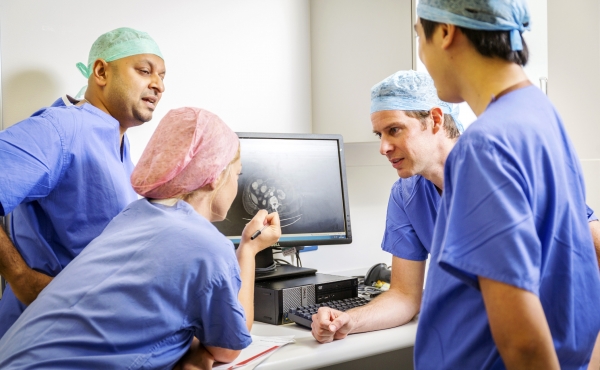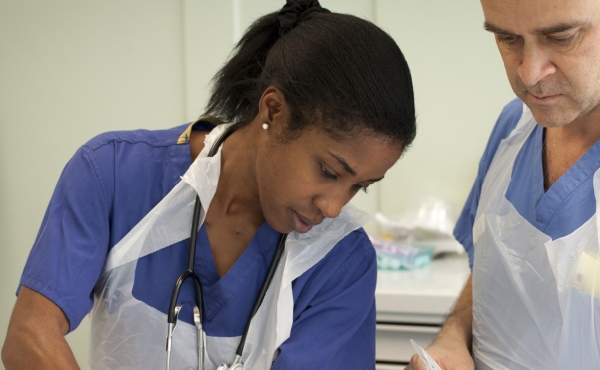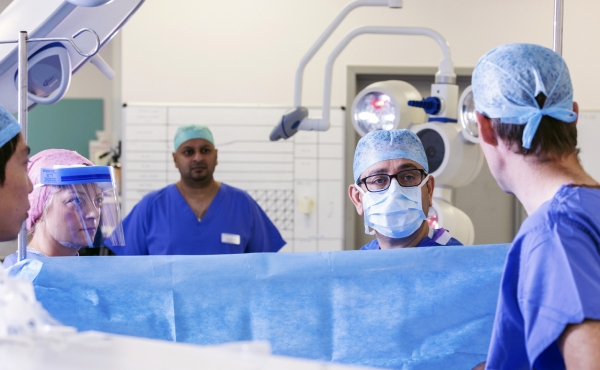Winning the NIAA Research Award 2024: A milestone in my journey as an early career researcher
I recently attended the RCoA’s Anaesthesia Research conference to present my work as part of the National Institute of Academic Anaesthesia (NIAA) Research Award. The day was a brilliant, thought-provoking event that offered invaluable networking opportunities and stimulating discussions that sparked new ideas and collaborations.
I presented my work entitled ‘A prospective translational study examining extracellular vesicles as crucial mediators of postoperative pulmonary complications induced by mechanical ventilation’ and was fortunate to win the NIAA Research Award. As an early career researcher, winning was a brilliant moment in my career. Not only did it validate the work I’ve been doing but it also reinforced my motivation to continue academia in the field of anaesthesia and critical care.
An exciting field of cellular biology
The body of work I presented was obtained during my PhD at Imperial College, principally under the supervision of Dr Sanooj Soni and jointly funded by the BJA and MRC. My PhD has focused on the role of extracellular vesicles (EV) in mediating postoperative pulmonary complications (PPC), a source of significant morbidity and mortality in up to 33% of patients undergoing major surgery. EVs represent a really exciting field of cellular biology and we are only just starting to understand their full potential. EVs are tiny membrane-bound particles released from cells when injured or activated and can carry various proinflammatory molecular cargo.
We hypothesised that lung stretch caused by mechanical ventilation at the time of major surgery causes the release of proinflammatory EVs which can propagate inflammation, rendering patients prone to PPCs. To test this, we conducted a prospective translational study involving oesophagostomy patients who undergo unphysiological one-lung ventilation and gastrectomy patients who only undergo two-lung ventilation.
By analysing blood and lung fluid samples taken from these patients throughout their perioperative period, we found that lung stretch causes a significant release of EVs from immune cells. These EVs had an abundance of MMPs associated with them and induced inflammation when incubated with alveolar cells in the laboratory. Crucially, those patients who suffered a PPC had significantly more EVs within their lungs than those who didn’t.
We also modelled the alveolus in the laboratory by using a series of cell cocultures, which we then stretched to replicate unphysiological ventilation. This allowed us to determine a mechanism for EV production and, subsequently, identify a potential pathway to inhibit this lung-stretched-induced EV release.
My ongoing research aims to build on the findings from this study, with a focus on developing therapeutic strategies to prevent PPCs and ventilation-induced lung injury. An exciting next step is to translate how we can target the release of EVs or their inflammatory cargo into patients to reduce lung injury and complications, which will ultimately help us reach our overarching goal of improving outcomes for perioperative and intensive care patients who require mechanical ventilation.
An invaluable network
The NIAA provides an invaluable network of academics and clinicians who are committed to advancing anaesthesia research. I am very grateful for the encouragement and recognition of young researchers like me, which has been essential in my development. As an early career researcher, opportunities to share your work with a wider academic community can be limited, and the recognition that comes with winning an award like this is invaluable. But more than the recognition, the NIAA’s support has been essential throughout my research journey thus far and I am sure I will be reliant upon it in the future as I continue to learn more about the complex relationship between mechanical ventilation, inflammation, and lung injury.
If you’re an early career researcher, I encourage you to pursue your passion for research, even when it is not the most straightforward path. At times, I have found academia to be intense, challenging and all-consuming, but with perseverance and the right support, it can be highly fulfilling and rewarding because when your experiments work, you become the only person in the world to know that information at that time!
I would like to reiterate my thanks to the NIAA and the RCoA for the opportunity and to the BJA, MRC and Friends of Hammersmith Hospital for funding this work.



